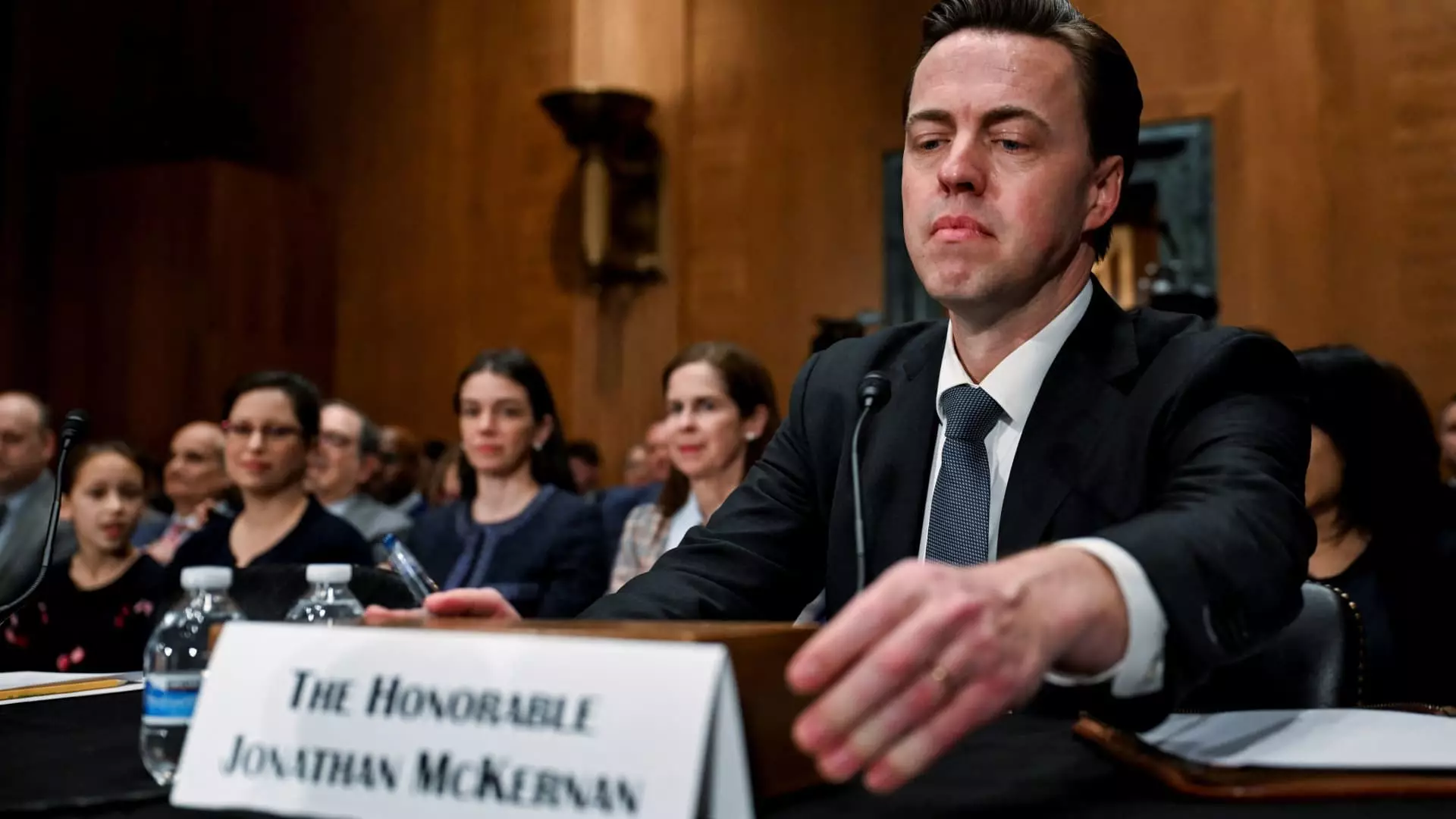The nomination of Jonathan McKernan as the head of the Consumer Financial Protection Bureau (CFPB) by President Donald Trump has brought about a mixture of skepticism and cautious optimism. During a Senate hearing where he faced tough scrutiny from Democratic senators, including Elizabeth Warren, McKernan articulated his commitment to uphold the agency’s legislative mandates. However, his responses initiated a deeper inquiry not just into his intentions, but also into the broader future of the CFPB in a political climate rife with challenges.
The CFPB was established in response to the 2008 financial crisis, a time marked by rampant consumer exploitation in the financial services sector. The main impetus behind its creation was to safeguard consumers from predatory lending practices and ensure transparency in financial markets. This legislative response was a monumental attempt at fostering accountability and protective measures within the financial industry. McKernan’s acknowledgment of this history suggests he understands the need for a regulatory framework that truly acts in the interest of everyday Americans, an understanding he attributes to his early legal career amidst the fallout of the crisis.
One of McKernan’s notable stances during his Senate hearing was his criticism of the CFPB’s previous management under Rohit Chopra. He claimed the agency, in its prior execution, had “acted in a politicized manner” and overspent its jurisdiction, leading to unintended harms for consumers, including increased costs. This critique raises questions about whether McKernan’s leadership would veer towards a more cautious or even conservative operational style, potentially sacrificing robust consumer protections for the sake of reduced regulatory overreach.
Moreover, McKernan’s remarks spotlight a unique tension within the CFPB. He argues that the agency currently faces a “crisis of legitimacy,” a phrase that could resonate broadly with stakeholders concerned about the agency’s future. If McKernan believes that the bureau’s reputation has been tarnished, one must wonder how he plans to restore public trust while executing his vision of “right-sizing” and “refocusing” the organization.
Recent actions by the CFPB signal a troubling trend for the agency. With the abrupt closure of its Washington D.C. headquarters and the mass termination of staff, there are clear indications that significant changes are afoot. The possibility that more than 95% of the workforce could be laid off is particularly alarming, raising fears about the institution’s survival. If McKernan aims to lead in this tumultuous environment, he must navigate the precarious balance between fulfilling the CFPB’s original mandate and responding to the current administration’s apparent desire to dismantle it.
The decisions McKernan will need to make about which cases to prioritize and how to enforce regulations become critical in this context. When pressed by Warren about maintaining the CFPB’s essential functions—such as providing consumer complaint mechanisms—McKernan affirmed his commitment to uphold these laws. However, the credibility of his assurances rests heavily on whether sufficient resources and political backing will be available to him.
As the Senate hearing unfolded, concerns over McKernan’s alignment with Trump administration policies became increasingly apparent. The administration’s initiatives, including the dissolution of legal actions against financial institutions, draw attention to a philosophical divide: should the CFPB act as a regulator aimed at consumer protection or a facilitator for the financial industry? This fundamental question will likely shape McKernan’s tenure, should he be confirmed.
Senator Jack Reed’s remarks about the cancellation of the CFPB’s headquarters lease and the broader implications of these administrative decisions served as a stark reminder of the fragility of regulatory frameworks. The potential fate of the CFPB rests not only on McKernan’s decisions but also on the political climate within Washington.
McKernan’s confirmation as head of the CFPB could very well be a critical turning point for the agency. His commitment to enforce laws and protect consumers will be pitted against an administration that appears to favor deregulation. The question remains: will he be able to champion consumer advocacy in the face of systemic challenges, or will his tenure be marked by retrenchment and regulatory retreat? Only time will unveil the answers to these pressing inquiries.

